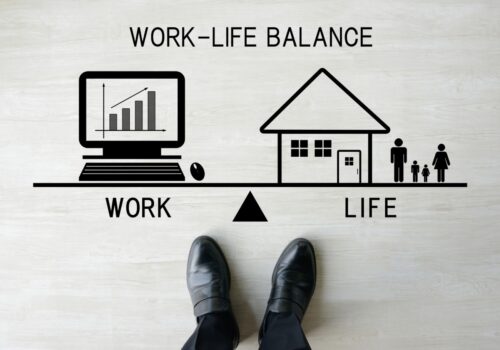Generation Z, or Gen Z, has often been called the first actual digital generation. They are one of the best examples of an evolving workforce, but with Gen-Z came several new preferences and priorities that make it challenging for companies to manage Gen-Z.
Who is Gen-Z ?
Generation Z makes up 30% of the world’s population representing a capable and digitally savvy workforce born between the mid-1990s and the mid-2000s. Known for their corporate talent, inclusivity, and efficiency in the workplace, Gen-Z has always been synonymous with go-getters and ambition. However, despite significant advancements in the modern-day corporate world, companies still need help catering to this generation, which brings a unique set of values, expectations, and characteristics to the table.
Since the onset of the pandemic, there has been a marked change in the way people carry out their corporate duties with work from home (WFH), a new trend. Amidst these changes, the fact that Gen-Z is projected to make up 27% of the global workforce by 2025 is disrupting the status quo. Employers and organizations have no option but to create a Gen-Z-friendly workplace to harness the talents of this generation, nurturing their potential for the benefit of production. The question remains: What strategies should companies adopt, and what are the challenges to be acknowledged to manage this new situation?
What Makes Gen Z Employees Different From Others?
Generation Z is distinct from other generations in several significant respects. They are the first generation fully raised in the digital age, adept at digital tools, navigating the internet, and optimizing social media. Employees of the Gen Z generation embrace social justice, diversity, and inclusion, and they actively seek out businesses that share these values.
However, along with their abilities come their demands too, with Gen-Z constantly requiring feedback, stimulation, customized experiences and looking for opportunities to make a difference. For organizations to effectively engage and retain Gen Z talent, they must have a thorough understanding of these distinctive traits. These are the challenges companies face with Gen-Z.
Communication
In contrast to conventional professional communication techniques, Gen Z prefers digital communication channels like social networking and instant messaging. Older generations and coworkers who value phone or in-person communication more may become estranged from one another as a result. Gen Z’s constant attachment to their devices may lead to difficulties in unplugging from work or maintaining focus on tasks. To counter this tech-savvy prowess, companies must embrace technology to engage with Gen Z employees, whether it’s through digital collaboration tools, online learning platforms, or innovative communication methods.
Work And Life Balance Expectations
Generation Z focuses on finding a balance between work and life and giving priority to their well-being. They cherish time off and leisure activities and want flexibility in their job schedules. They might need help to balance the responsibilities of their jobs with their desire for a satisfying personal life. These young people are looking for more balanced working environments since they can see the effects of increased stress and burnout at work.
Short Attention Spans
Gen Z is often criticized for having shorter attention spans, which make it challenging for employers to keep them engaged in tasks that require sustained focus, such as complex projects or long meetings. To remedy this, companies can break down projects into smaller, more manageable segments. Implementing techniques like the Pomodoro Technique (working in focused intervals with short breaks) or organizing shorter, more frequent meetings can help maintain Gen Z’s engagement. Additionally, fostering an environment that promotes autonomy and allows for self-direction can help Gen Z employees stay motivated and focused on their tasks.
Diversity, Equity, And Inclusion
Gen Z expects its employees to create diverse and inclusive work environments where all employees feel heard, valued, and respected. Failing to meet these expectations might result in Gen-Z voicing their dissent on social media, which may mean bad publicity. Companies need to actively promote diversity and inclusion initiatives, such as dialogue for employees to express their thoughts and concerns without fear of retaliation. Implementing diversity and inclusion training programs will ensure the workforce reflects organizational values.
Staying Motivated
Speaking to Forbes, US marketing expert Scott Spivack said, “Gen Z demand more freedom and personal space when it comes to working. They’re not really inclined to work with managers who micro-manage because it kills their much-needed breathing space. Plus, each of them has a varied set of motivations, so it’s hard to figure out what exactly drives them. For some, it’s the idea of growth, while for others, it’s a good pay package. So, dealing with Gen Z employees is a constant learning process, and you need to adapt to lead them better,”
A Desire for Quick Career Progression
Gen Z is ambitious and hooked on career progression. They have no qualms about leaving a job due to lack of opportunities. This presents a challenge for companies who need to provide Gen-Z with a clear-cut career path. The only way to do so is to show how employees can advance within the organization, the skills they need to develop, and the milestones they need to achieve. This can also be achieved through mentorship programmes and employee appraisals, with constructive feedback informing Gen Z of their track performance.
Unfiltered Feedback
Gen Z is comfortable providing and receiving direct, honest feedback. While this can be a positive trait for organizations, it can also be a challenge when their feedback could be better received or when it comes across as overly critical. Gen Z employees expect open communication and a workplace culture that values their input. Companies must foster a culture of open and constructive communication to encourage employees to provide feedback for them to grow and improve.
They Constantly Need Gratification
Raised in an era of instant gratification, Gen Z’s desire for quick outcomes clashes with the difficult journey towards career advancement. The challenge is developing the virtue of patience in a setting that depends on persistent commitment and slow, steady progress.
Motivating Gen-Z in the workplace is not an impossible task. It is crucial to remember that they are unique, which means a wealth of skills and fresh perspectives to the workforce. Organizations need to adapt and create environments that not only retain the required modus operandi to keep Gen-Z stimulated but also geared up to meet the demands of future corporate culture. The key is to embrace change, foster open communication, and evolve with the workforce, ultimately harnessing the potential and innovation that Gen Z has to offer.
















